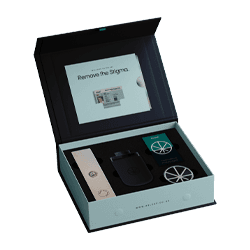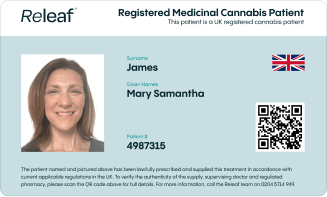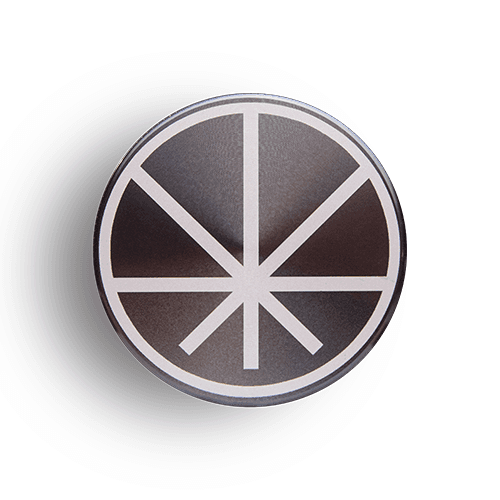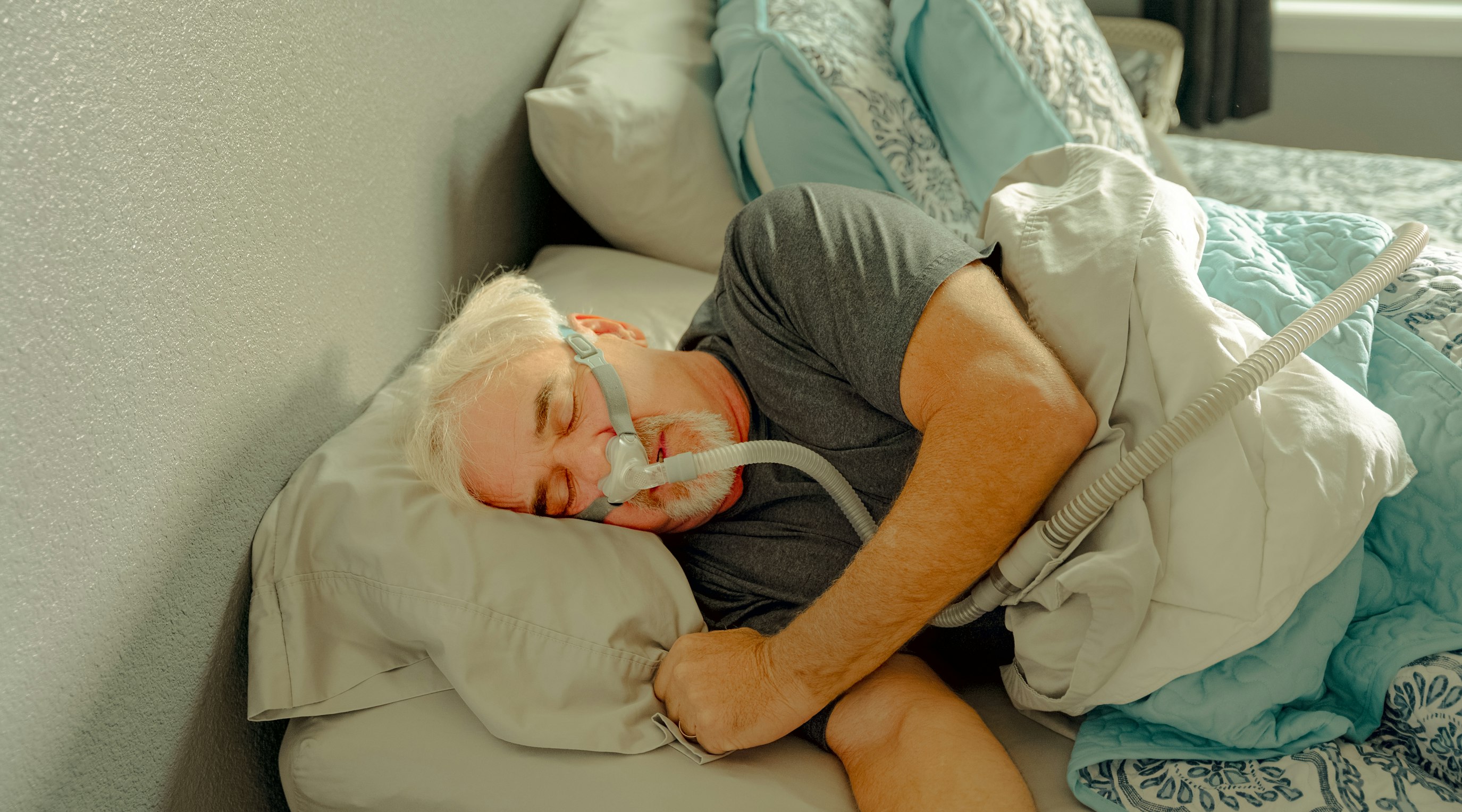At its most basic, sleep apnoea is a condition that describes an interruption of breathing during sleep, with the most common form of the condition called obstructive sleep apnoea (OSA). It needs to be treated because although it’s not generally serious in itself, it can lead to other serious health complications down the line.
The symptoms of sleep apnoea include:
- Breathing stopping and starting
- Gasping, snorting or choking noises
- Frequent waking
- Excessive snoring
Sufferers of sleep apnoea may also find themselves suffering from tiredness during the day, with associated difficulties concentrating, headaches and even mood swings.
Cannabis-related products, such as CBD, may offer potential benefits for chronic conditions that interrupt sleep. Some studies have shown that both CBD and THC variants, the two main active cannabinoids in cannabis, may have potential to relieve the symptoms of OSA, improving sleep for chronic sufferers of the condition.
How cannabis works to manage sleep apnoea
Cannabis may offer potential sleep promoting effects due to its interactions with the cannabinoid receptors in the brain. When it binds to these receptors, it has been shown to increase the levels of sleep promoting adenosine and also suppress the brain’s arousal system, creating the sensation of sleepiness.
So far, so good. Cannabis seems to show promise in promoting healthy sleep. But just how does it help with conditions such as OSA that occur during sleep? Early studies have shown that cannabinoid agonists such as dronabinol (a synthetic version of THC) can help to improve respiratory stability throughout sleep periods and therefore help to reduce the effects of OSA.
In studies, sufferers from OSA were given pills of strengths between 2.5 to 10 mg. The results were impressive, with a significant improvement in the apnoea hypopnea index (the scale used to measure the severity of sleep apnoea) of 32% over a three-week period. That’s an improvement of one third in just three weeks, meaning better sleep, less tiredness and reduced irritability during the day.
Another study, while not focus directly on sleep apnoea, did also show promising results. Titled “Cannabidiol in Anxiety and Sleep: A Large Case Series”, researchers found that CBD in a wide range of doses potentially helped to increase sleep hours and quality, while also decreasing the subjective anxiety patients reported.
Combining cannabis with other sleep apnoea management techniques
Although the early signs of the benefits of cannabis for sleep apnoea treatment are encouraging, it should never be viewed as a complete cure. As such, it needs to be taken moderately and in tandem with other sleep apnoea management techniques. These include lifestyle changes such as:
- Losing weight
- Regular exercise
- Drinking alcohol moderately, if at all
- Smoking cessation
- Use of nasal decongestant
- Not sleeping on your back
- Avoiding sedative medications such sleeping pills
None of these lifestyle changes specifically rule out the possibility of using cannabis as a means of relieving sleep apnoea. However, as well as these lifestyle changes, there are also a number of physical interventions or treatments that can help to prevent sleep apnoea. These include:
Positive airway pressure: This involves fitting a device to deliver continuous positive airway pressure (CPAP) which ensures all airways are kept open to prevent breathing interruptions. Although a very successful method of preventing apnoea, many patients find the idea of wearing a breathing mask in bed unpleasant or uncomfortable, although more modern masks are less intrusive. CPAP machines are the gold standard when it comes to sleep apnoea treatment.
Mouthpiece: These oral devices are designed to keep the airways open, usually by bringing the lower jaw forward, which relieves both snoring and apnoea. Other devices hold your tongue in a certain position.
Surgery: This is a more extreme method of treating apnoea and only considered when all other treatments have been explored. It typically involves the removal of small amounts of tissue from the back of the mouth or top of the throat.
As medicinal cannabis combats sleep apnoea differently to any of the above intervention treatments, it should be taken in conjunction with them. However, you should always consult your doctor before beginning any medicinal cannabis treatment.
Cannabis products for managing sleep apnoea
The two main cannabinoids in medicinal cannabis that produce effects on the human body are tetrahydrocannabinol (THC) and cannabidiol (CBD). Both have been shown to have potential beneficial effects on sleep in humans, however, the research is still in its early stages when it comes to what type of medicinal cannabis are good for sleep apnoea.
One particularly promising study into dronabinol, a synthetic version of THC, has shown particular benefits for helping with sleep apnoea, so this would be the place to start. Both THC and CBD have been shown to have the potential to offer positive effects for those suffering with chronic pain and other conditions, although there is as yet no direct link to sleep apnoea. However, the general positive sleep effects may help to ease some of the symptoms of tiredness and irritability.
Risks and side effects of medicinal cannabis for sleep apnoea
Some caution is advised in the administration of medicinal cannabis in the treatment of sleep apnoea in that it can often lead to increased appetite, which in turn may lead to weight gain, one of the underlying causes of sleep apnoea.
Other side effects related to the administration of medicinal cannabis include:
- Red eyes
- Low blood pressure
- Nausea
- Racing heartbeat
The majority of these side effects are related to higher doses than what is most typically prescribed or recommended with medicinal administration. If you do notice any unwanted effects from medicinal cannabis, make sure to contact your prescribing doctor.
In conclusion
The administration of medicinal cannabis for sleep apnoea is still in its early stages, from a scientific point of view. However, the early signs are looking very positive, and anecdotal evidence from apnoea sufferers who have tried cannabis sleep enhancers is similarly positive.
As always, you should consult your doctor before trying any treatment, and it’s worth remembering that although often misunderstood, sleep apnoea is a serious medical condition that can have long term health consequences. However, as research continues, there’s hope that medicinal cannabis will be able to offer some of the one billion apnoea sufferers around the world some respite from the condition.
Releaf understands the importance of medical cannabis in treating various medical conditions. With our tailored monthly packages, specialist consultations for medical cannabis, and a unique medical cannabis card for protection, you can access the treatment you need without worrying about the stigma.





